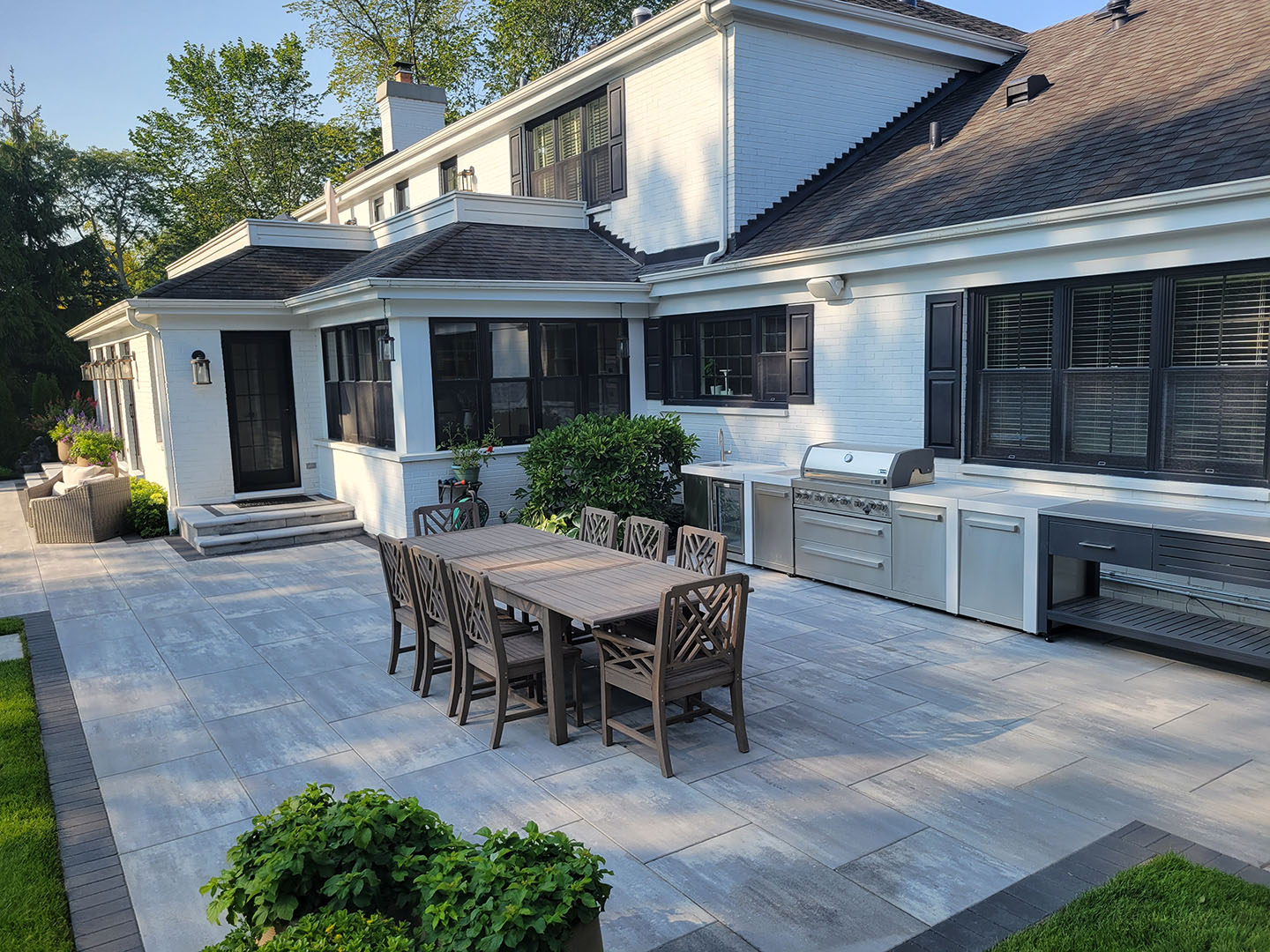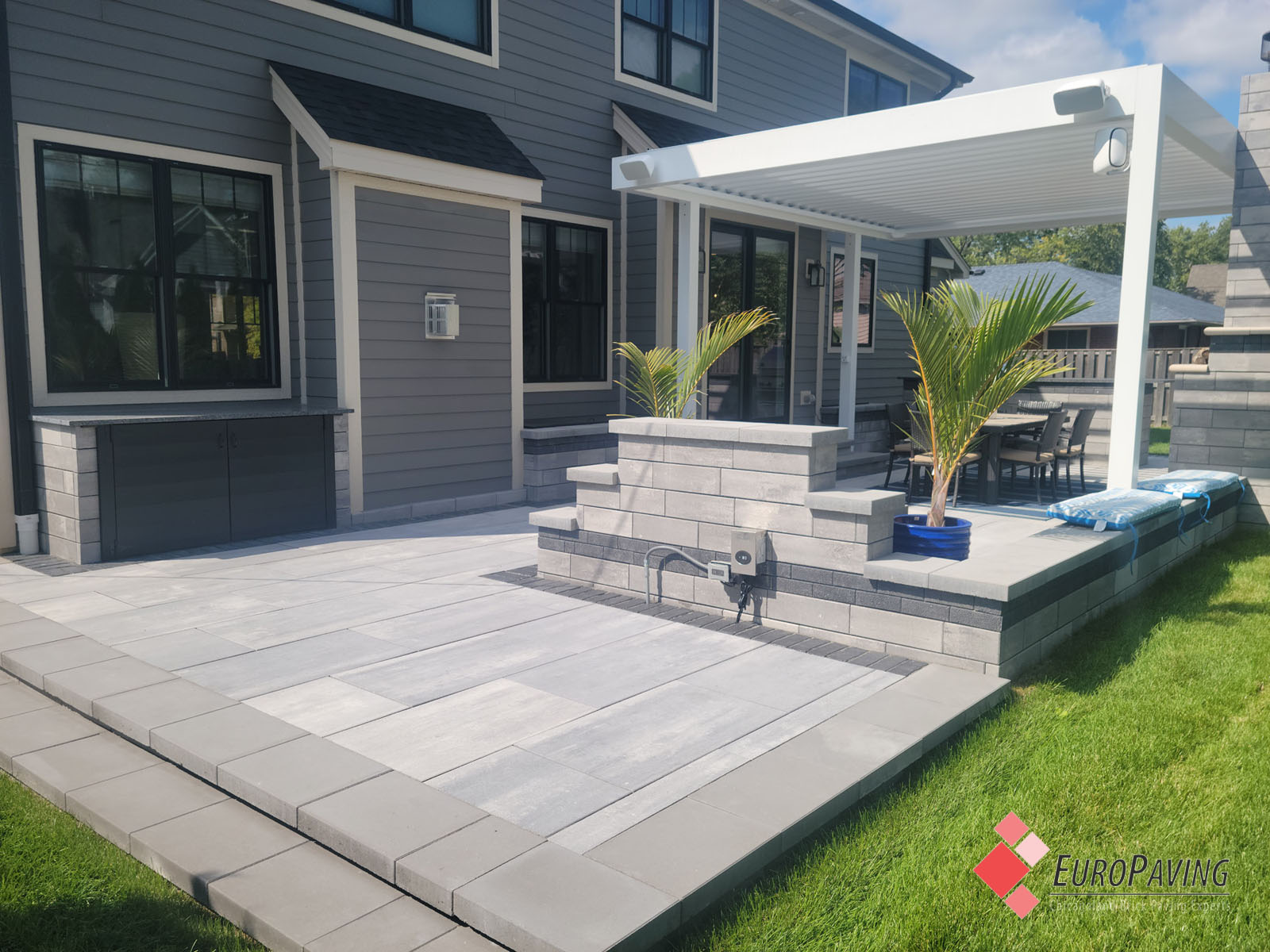
A well-maintained brick patio, brick walkway, or brick driveway is an investment that adds beauty and functionality to your property. It provides a place for relaxation, entertaining guests, and enjoying the outdoors. However, even the most durable paving materials can succumb to wear and tear over time. The elements, improper installation, and everyday use can all contribute to problems that require professional attention. So, how do you know when it’s time to call in a paving expert instead of attempting a DIY project? Here are 5 key signs:
1. Cracks and Uneven Surfaces
Settling, bad weather or inferior workmanship can cause your paved areas to develop cracks and become uneven, but even small cracks can be a bad omen. The cracks can widen over time as the freeze/thaw cycles of passing seasons open and close tiny cavernous gaps, and cracked pavement can be infiltrated by water. Larger cracks can eventually break and become tripping hazards that can damage furniture or create an entry point for weeds and pests.
Ask your paving specialist to take a look and see how extensive the cracks are. He or she should be able to determine whether surface cracks can be patched by a specialized coating that cements into cracked pavement, or whether a larger amount of mudjacking, in which a zero mix slurry is injected under the paved surface, pumping it in to lift and level the pavement is required. In the worst cases, replacement of the paving material might be your only option.
2. Pooling Water
Pavement should be sloped enough to allow water to escape so it doesn’t pool. When it rains or snows, do you ever find standing water puddled on your patio, walkway or driveway? That may spell drainage trouble. If it’s addressed, the results could hurt you in more ways than you might expect. Puddles can damage the foundation of your pavement in three different ways. First, when water freezes, it expands. This can widen cracks and heave up the pavement. Next, water can infiltrate the subbase material. This constant exposure to wetness washes away soil particles and eventually compromises the structural integrity of the pavement. Third, standing water can breed mosquitoes and other insects. If you have standing water on any hardscape after it rains, snow-melts or is irrigated, it is best to have a paving expert assess the situation to see where it’s coming from.
Your expert can determine whether the water is due to an incorrect initial grading or improper compaction of the pavement base, or if a maintenance issue such as a clogged drain or settling subbase material might be the cause. Fixing your grading is the best solution to drainage problems. Proper grading creates a path for water to run off of your hardscape so it doesn’t pool. Drains or downspouts at the base of a wall can create a point for the water to escape, but those routes must be properly graded as well.
3. Weed and Grass Growth
Persistent weed and grass growth through cracks and joints in your pavement is not just unsightly; it can also weaken the structural integrity of the paving material. Over time, plant roots can grow and expand, further widening cracks and causing the pavement to become uneven. While you can try removing weeds yourself, this is often a temporary solution. New weeds will likely sprout again unless you address the root cause of the problem.
Professional paving companies have access to long-term solutions like polymeric sand or weed control membranes. Polymeric sand is a specialized type of sand that fills the gaps between pavers and helps lock them in place. It also contains a binder that inhibits weed growth. Weed control membranes are a physical barrier placed beneath the pavement material that prevents weeds from pushing through. These solutions can help prevent future weed growth and maintain the beauty and functionality of your pavement.
4. Loose or Shifting Pavers
Over time, pavers can become loose or misaligned due to several factors. Improper installation during the initial project is a common culprit. If the subbase material was not properly compacted, or if the pavers were not set on a stable foundation, they can become loose over time. Ground movement due to settling or freeze-thaw cycles can also contribute to shifting pavers. Erosion from water runoff can wash away supporting soil, causing pavers to sink or become uneven. Loose pavers are not only a tripping hazard but can also damage surrounding landscaping as they become uneven and create gaps.
A professional paving expert, such as Euro Paving, can assess the situation and determine if the pavers can be reset or if replacement is necessary. In some cases, they might be able to re-compact the subbase material and reset the pavers using polymeric sand for added stability. For more severe cases, they might recommend replacing the pavers entirely, ensuring a level and stable surface.
5. Staining and Fading
Exposure to the elements can also contribute to the breakdown of your pavement. Sun exposure can cause the color of the paving material to fade over time. Unforgiving weather can also leave behind stains from hail or heavy rains. Mild staining, if treated properly, with proper techniques and cleaning products, can be removed. Likewise, mild fading can also be treated in the same manner. Extensive staining or fading, however, may require a bigger solution to restore the surface beauty and health. A paving expert can discuss the best course of action so that a paved surface can be enjoyed for years to come. For mild cases of fading, a paving expert might recommend cleaning and sealing as the method of treatment. Sealants create a protective coat that helps to protect a pavement from staining and protect against further fading, as well as enhancing the color. For more extreme fading or staining cases, your paving expert may recommend power washing. Power washing involves the use of high-pressure water that can break down and remove dirt, grime, and some stains from the surface of the pavement.
A professional paving expert has the skills and equipment to power wash any pavement safely and effectively. In extreme cases of severe staining or fading, a complete resurfacing project may need to be completed that involves the process of removing the existing pavement material and installing new material overtop.
Don’t Wait Until It’s Too Late, Call Euro Paving, Your Chicago Paving Expert





